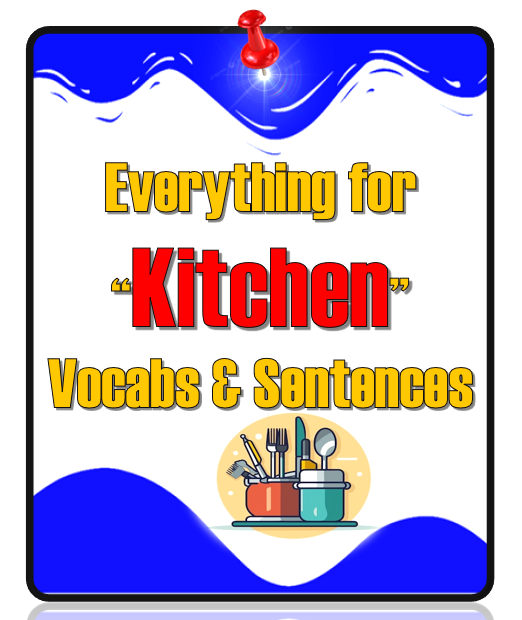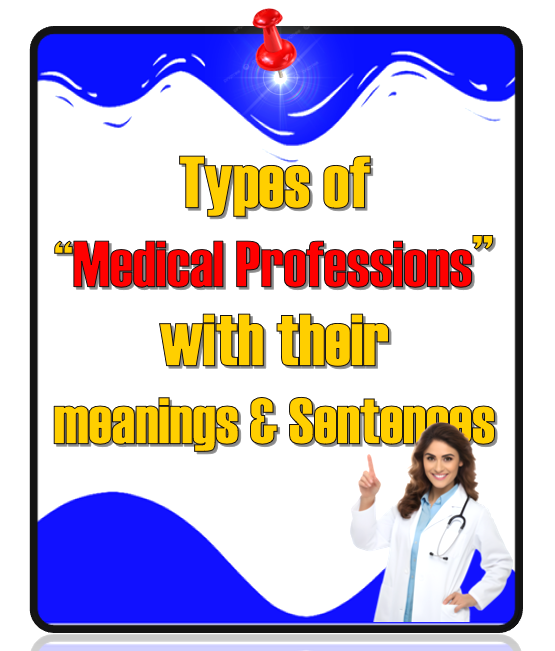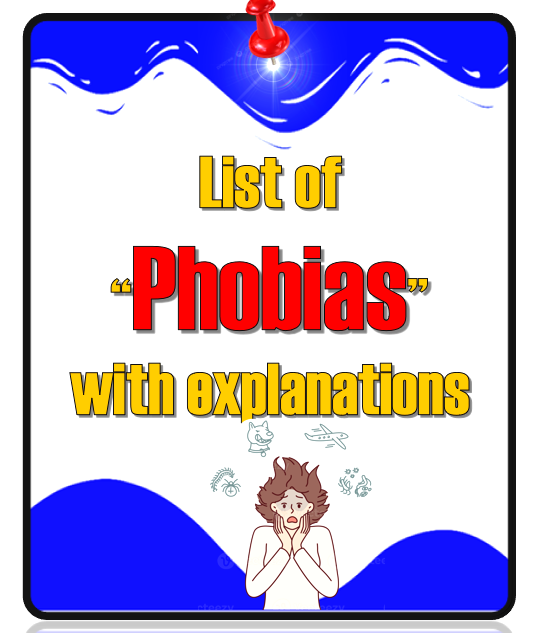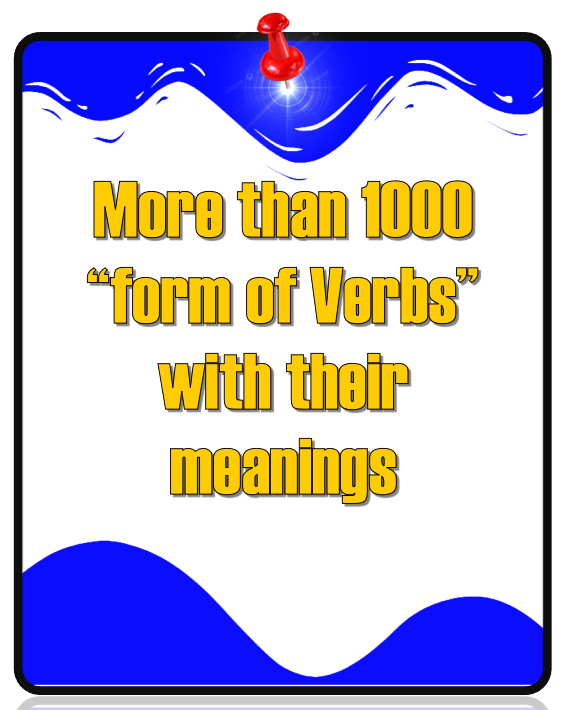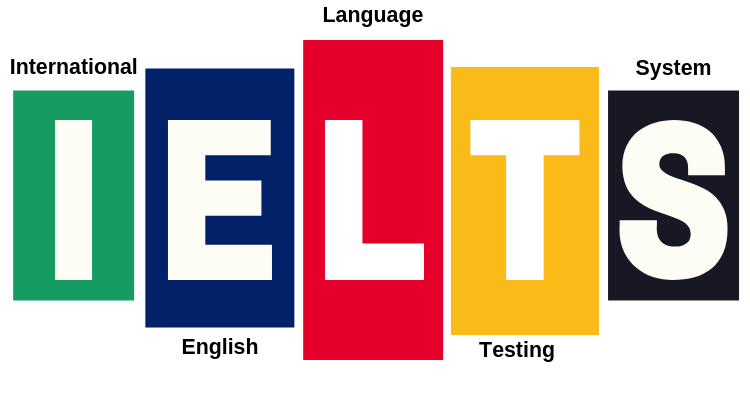
- What is IELTS?
IELTS stands for the International English Language Testing System – an English Language proficiency test. Globally, there are more than 4 million test takers a year, making IELTS the world’s most popular English language proficiency test for higher education and global migration.
IELTS is a joint venture, developed and run by the British Council in partnership with IDP Education and Cambridge Assessment English.
The IELTS test comprises four components: Listening, Reading, Writing, and Speaking. Each component is scored on a scale of 0-9, with 0 being the lowest and 9 being the highest. The scores from each component are then averaged to give you an overall band score.- Why should you choose IELTS?
IELTS focuses on real-world communication skills and offers a number of important benefits:
Access new opportunities throughout the world as, IELTS is trusted by 12,000 organisations in over 140 countries around the world.
Advance your career internationally and settle in English speaking country.
You can Prove your English proficiency to future employers for lucrative jobs and get positive results.
- Key facts about IELTS Academic and General Training:
- Test length: 2 hours and 45 minutes long.
- Test is conducted in 4 sections/modules: Listening, Reading, Writing, and Speaking.
- The Listening, Reading, and Writing sections take place on the same day with no breaks in between.
- The Speaking section may be scheduled on the same day or up to 7 days before or after the other sections.
- Note: Video call Speaking test
Many IELTS test centres will start delivering the IELTS Speaking test via video calls. This means more flexibility and more availability of IELTS Speaking tests.You will take the video call Speaking test at an official IELTS test centre with the same high standard of identity verification. The test will be exactly the same as the in-person Speaking test in terms of content, scoring, timing, level of difficulty, question format and security arrangements. Delivered by an IELTS Speaking Examiner, the video call Speaking test will maintain the face-to-face feature of the in-person Speaking test.
The Listening section of IELTS includes a range of accents and the Speaking section examines the English used by people from different parts of the world.
- Be Careful while choosing the test.
Take the test on paper, on computer or online from the comfort of your home. With many testing dates available around the world, IELTS fits most schedules.
Each visa has its own IELTS score requirements. It’s important that you confirm what score you need to secure your visa.
- After completing an IELTS test, you will receive an official Test Report Form (TRF) that contains your IELTS score.
- Your TRF is valid for two years and should be submitted to visa authorities to prove your English proficiency.
Comparison
Comparing different test scores can be difficult, but IELTS is widely recognised as setting the standard for English language testing. To understand the advantages the test offers, let’s compare IELTS with other popular assessments.
IELTS vs. TOEFL | |
IELTS is widely recognised globally and not confined to UK English, making it a versatile choice for test-takers. IELTS also provides the flexibility of taking the test on paper or on computer, catering to individual preferences. | TOEFL (Test of English as a Foreign Language) tests your ability to use North American English and is primarily computer-based. |
| Both tests aim to assess English language proficiency accurately and fairly, without one being inherently harder than the other. | |
IELTS vs. PTE | |
| IELTS Academic assesses your English skills for academic environments, while IELTS General Training also tests for practical and everyday language. | PTE (Pearson Test of English) has a strong focus on academic English. |
| Both tests are the same level of difficulty. PTE only provides computer-based testing. IELTS lets you choose between doing the test on paper or on computer. | |
IELTS vs. C1 Advanced | |
| IELTS tests all key English skills and has wider recognition, with more test availability throughout the year. | C1 Advanced is a Cambridge exam that tests all key English skills. |
| Both are globally accepted. | |
IELTS vs. DET | |
| IELTS testing is more comprehensive and remains the gold standard for institutions and immigration departments. | DET (Duolingo English Test) is a newly established test that provides online, on-demand testing. |
Understanding the IELTS Band Score
The IELTS test comprises four components: Listening, Reading, Writing, and Speaking. Each component is scored on a scale of 0-9, with 0 being the lowest and 9 being the highest. The scores from each component are then averaged to give you an overall band score.
Listening:
The listening component of the IELTS test consists of four sections, each with ten questions. The total test duration is approximately 30 minutes to assess your ability to understand spoken English.
Reading:
The reading component of the IELTS test consists of three sections, with a total of 40 questions. The total test duration is 60 minutes, designed to assess your ability to read and understand academic texts.
Writing:
The writing component of the IELTS test consists of two tasks. The total test duration is 60 minutes, designed to assess your ability to write in English.
Speaking:
The speaking component of the IELTS test consists of three parts. Part 1 is a general introduction, Part 2 requires you to speak on a given topic, and Part 3 involves a discussion with the examiner. The total test duration is approximately 11-14 minutes, designed to assess your ability to speak in English.
Your result will be reported on a 9-band scale from
1 (the lowest) to 9 (the highest)
Band score Skill Level Description
9 Bands: (Expert User)
Has fully operational command of the language. Use of English is appropriate, accurate, and fluent, and shows complete understanding.
8 Bands: (Very good)
Has fully operational command of the language with only occasional unsystematic inaccuracies and inappropriate usage. May misunderstand some things in unfamiliar situations. They handle complex and detailed argumentation well.
7 Bands: (Good)
Has operational command of the language, though with occasional inaccuracies, inappropriate usage, and misunderstandings in some situations. Generally handle complex language well and understand detailed reasoning.
6 Bands: (Competent User)
Has an effective command of the language despite some inaccuracies, inappropriate usage, and misunderstandings. Can use and understand reasonably complex language, particularly in familiar situations.
5 Bands: (Modest User)
Has a partial command of the language and copes with overall meaning in most situations, although they are likely to make many mistakes. Should be able to handle basic communication in their own field.
4 Bands: (Limited User)
Basic competence is limited to familiar situations. Frequently show problems in understanding and expression.
3 Bands: (Extremely limited User)
Conveys and understands only general meaning in very familiar situations. Frequent breakdowns in communication.
2 Bands: (Intermittent User)
No real communication is possible except for the most basic information using isolated words or short formulae in familiar situations
and to meet immediate needs. Has great difficulty understanding spoken and written English.
1 Band: (Non-user)
Essentially has no ability to use the language beyond possibly a few isolated words.
0 Did not attempt
IELTS SCORE CALCULATOR
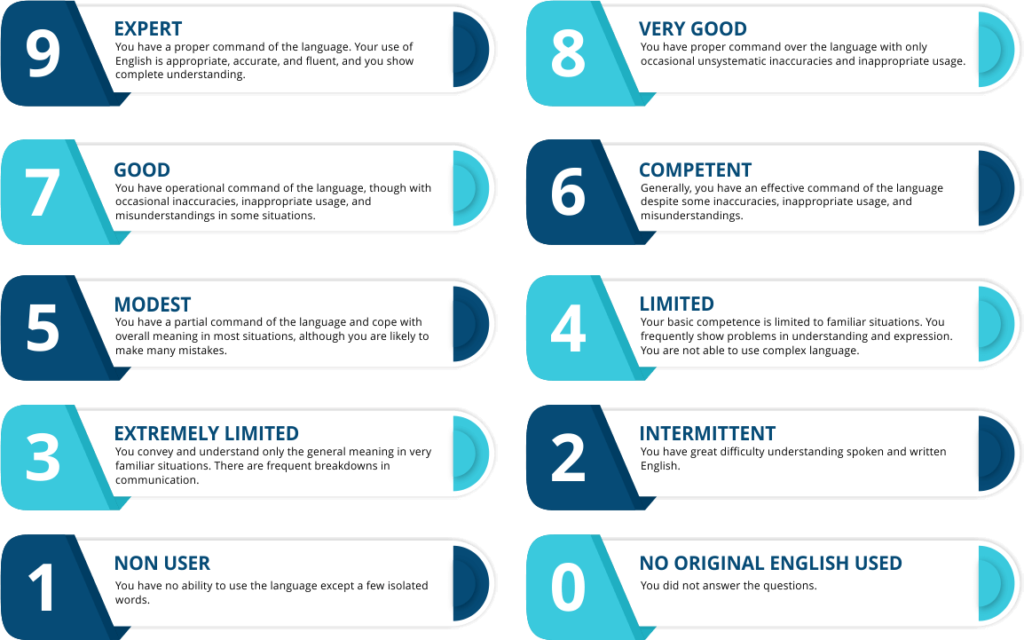
IELTS SCORE CALCULATOR
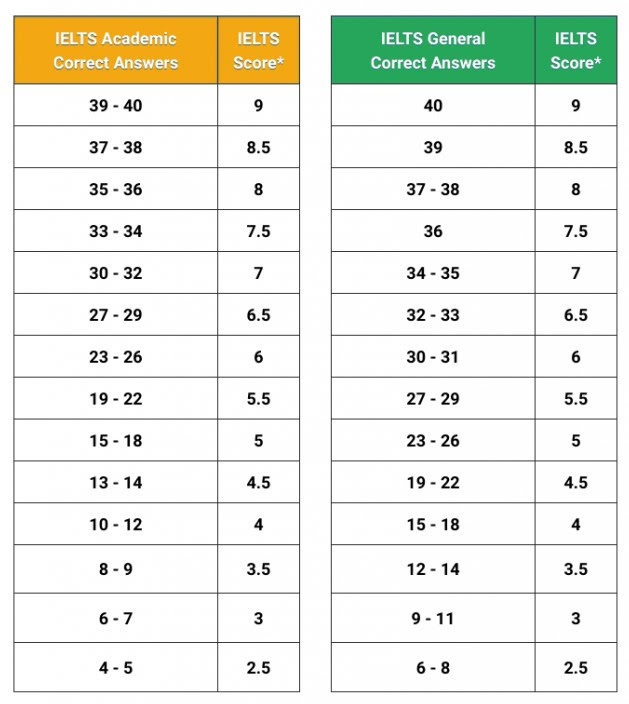
IELTS TIME DURATION



